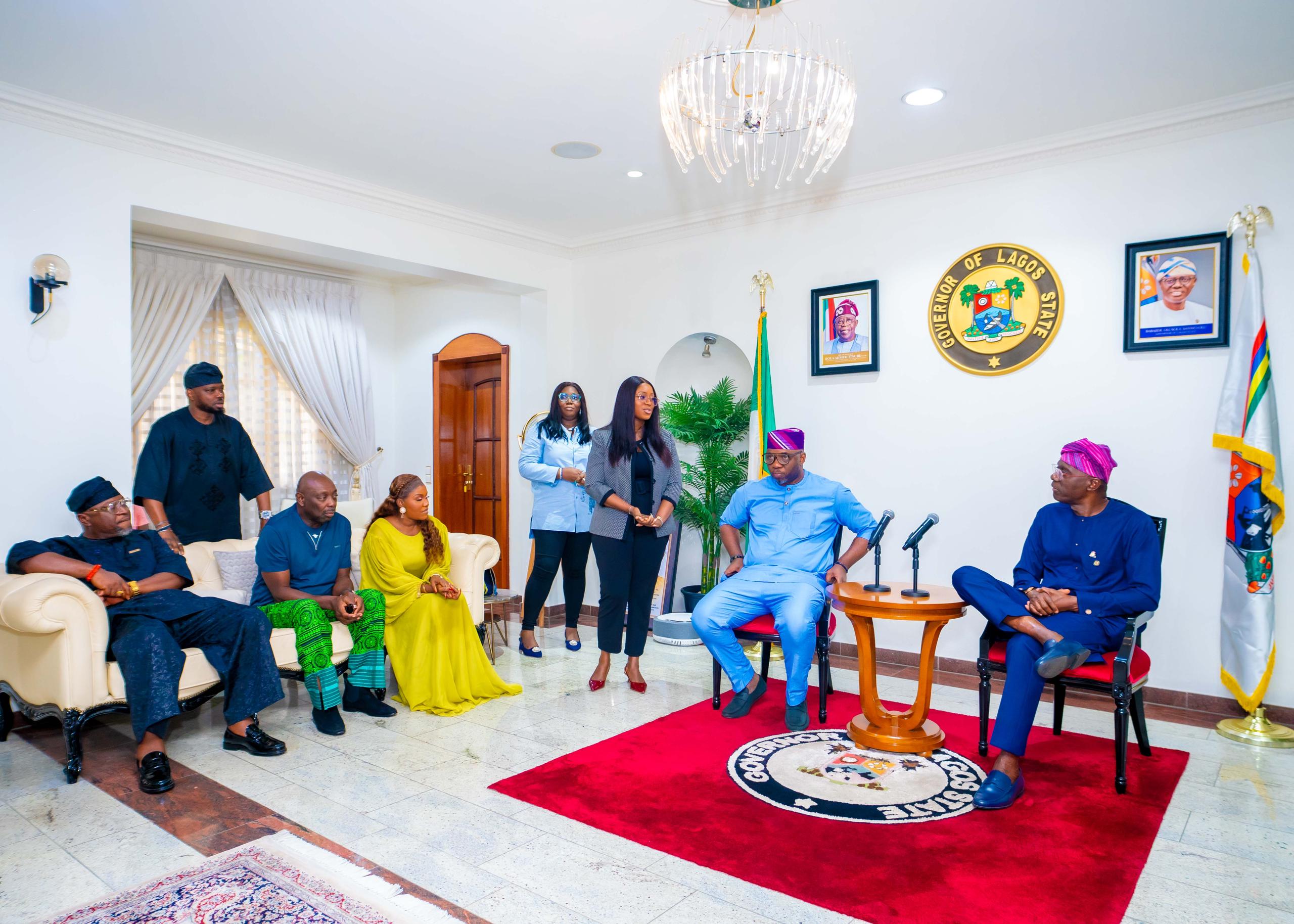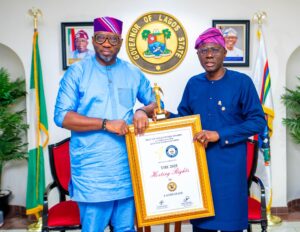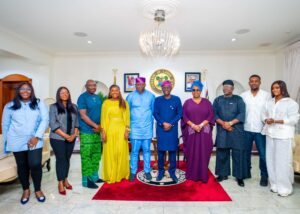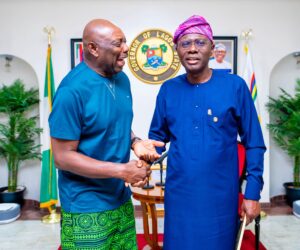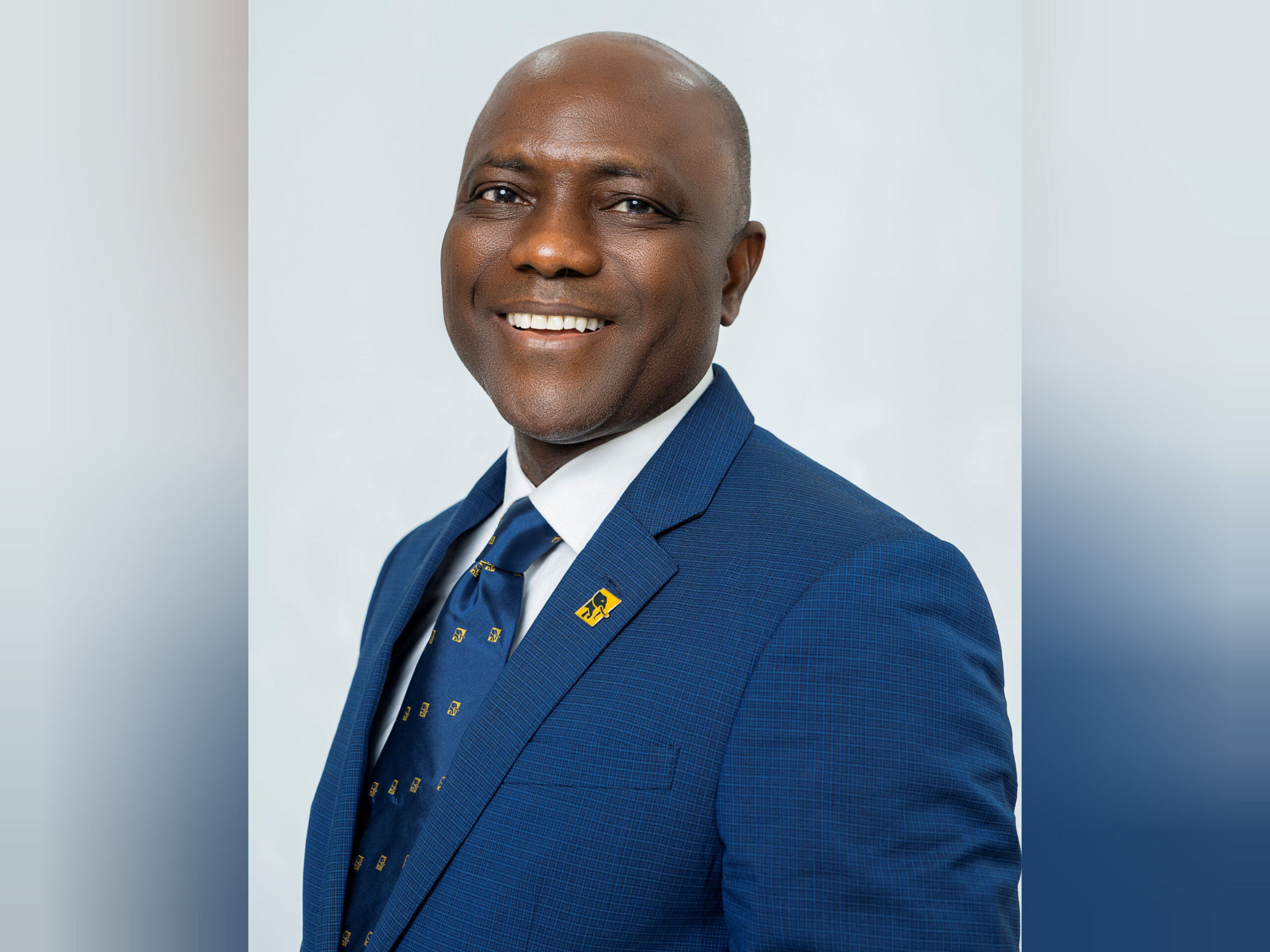The Federal Government berated organised labour on Thursday for declaring a strike in Imo State and planning a nationwide strike on November 14 in response to the physical attack on the President of the Nigeria Labour Congress, Joe Ajaero, in Owerri, the state capital.
Festus Keyamo, SAN, Minister of Aviation and Aerospace Development, has warned the NLC and the Trade Union Congress against politicising Ajero’s alleged mistreatment, warning that politics might damage the country’s labour movement.
In response to the assault on the labour leader during a protest against the Imo State government on November 1, organised labour blocked all Owerri-bound flights at the Lagos and Abuja airports on Thursday, forcing passengers to deplane.
The union leaders and their members picketed the Nnamidi Azikiwe International Airport, disrupting the operations of the facility and leaving many passengers stranded.
The unions had announced the action after their extraordinary National Executive Council meeting which was held in Abuja on Tuesday.
But angered by the development, Keyamo came down hard on the labour leaders, accusing them of being ‘’Labour Party hirelings.’’
While appealing to the labour unions not to destroy themselves with involvement in politics, the minister maintained that the aviation ministry was not involved in the alleged maltreatment of the NLC leader.
Keyamo, who spoke at the opening of a retreat for the Minister, Permanent Secretary, Directors and Head of Agencies of the Aviation Ministry, in Effurun, Uvwie Local Government Area of Delta State, pointed out that the “Aviation (sector) was not involved at all; but their target is aviation.
“Their retaliation is aviation. So, please, I want to tell them to leave us alone. Leave aviation alone. You cannot target aviation in trying to address your grievances.’’
He noted with concern that the protest by the labour could affect foreigners coming into the country as well as citizens going about their normal businesses as, according to him, the protesters disrupted aviation activities by blocking the access road to the Abuja International Airport.
Keyamo, while claiming to be grounded in legal, civil society and labour matters declared that “it is not good for the image of the labour movement.
“I pray and I’m talking directly to them: Do not allow the Labour Party to destroy the labour movement. I repeat, do not allow the Labour Party and politics to destroy the labour movement.
“Call your leadership to order. Don’t get sucked into politics. It will destroy the labour movement. They cannot be hirelings in the Labour Party and they used them at their will. That’s why you see that the labour movement does not control the policies of the Labour Party.”
However, Keyamo disclosed that the aviation ministry had mobilised security agencies to disperse the protesters from the Abuja International Airport.
He noted, “I, as aviation minister, will not allow that target on aviation. They should not target aviation. If they do that, I will fight back and they should not bring politics to aviation. I’m grounded in this. I have been with them all over the years but they cannot deceive me.
“What they are doing is politics. It’s not labour movement, it’s politics. You cannot use that platform to go and support a party different from my party when you’re fighting back. You say it’s labour movement. No, it’s not. You should be ready for the consequences if you play politics”.
Keyamo condemned the alleged maltreatment of the NLC president, stressing that nobody should be manhandled.
During the picketing of the airports, the NLC, TUC, and the aviation unions compelled some airlines to deplane their passengers travelling to Owerri from Lagos and Abuja airports.
Unions picket airports
It was gathered that members of the unions carried out the process seamlessly at the Murtala Muhammed Airport in Lagos without disrupting the flights of other non-Owerri bound passengers.
But the situation in Abuja was rowdy as the unions staged a protest at the entrance of the Nnamdi Azikiwe International Airport, paralysing access to the facility.
Hundreds of vehicles transporting travellers to the airport were trapped outside the NAIA, as the passengers were left stranded due to the development.
A traveller who was heading to the Abuja airport, Siraj Abubakar, said the protesters stopped vehicles from gaining entry into the facility around 8.30am on Thursday.
The aviation unions across the country had earlier declared the suspension of all flights to Owerri, Imo State, from every airport in Nigeria effective from Wednesday.
The TUC President, Festus Osifo, and the Deputy NLC President, Adewale Adeyanju, who led the protest, also visited the headquarters of the Nigeria Police Force to meet with the IG.
Addressing the workers, the TUC president said the picketing was to express the displeasure of workers over the physical attack on Ajaero.
He noted that the exercise which was only the beginning of the planned protest was to inform the government that ‘injury to one was an injury to all members.’
Osifo said, “Comrades, we have established the reason why we are here because an injury to one is indeed an injury to all. Someone asked me why we came to the Nnamdi Azikwe Airport when the issue should have been limited to Imo State.
“We said no, the person that was brutalised is a national figure, our president is a national figure and the police that beat him are called the Nigeria police. They report to the Inspector-General of Police who in turn report to the President. So this is a national issue and as such we must make it one.’’
Osifo directed the workers to commence preparation for a grand protest and strike action scheduled for Tuesday next week.
“This is just the beginning. We have just started. By midnight on Tuesday, November 14, don’t bother leaving your house. We have given you a notice now. Every worker will be at home. Let’s see who owns Nigeria.’’
The Chairman of the Air Transport Services Senior Staff Association of Nigeria, Federal Airports Authority of Nigeria Branch, Ahmed Danjuma, justified the airport action.
“The picketing of the airports is as a result of the issue on the ground. We were directed by the two labour centres to stop all flights going to Owerri, only Owerri,” he stated.
Asked to state how the unions identified the Owerri-bound flights, Danjuma replied, “We know the airlines that operate to Owerri. In Lagos, it (the picketing) was actually seamless and polite. We spoke to United Nigeria Airlines at MMA2.
“Even though they started boarding at the beginning, we spoke to them to disembark the passengers. For Air Peace too, we told them not to service the Owerri route today and it was politely done. So, we had already interfaced with them.
“The management of FAAN also spoke with us, saying instead of us coming into the airport to disrupt the operations, we should meet with a few of the airlines involved since it is only one route that is affected.
“This happened today (Thursday) and it is also the same directive that was given to our people there in Abuja. Although I don’t know what is the true situation there yet.”
When told that the unions in Abuja actually blocked the entrance of the airport, Danjuma said, “That is too much, they are not supposed to go about it that way. We are not shutting down everywhere. It is only flights going to Owerri and we spoke to the airlines not to check in their passengers.”
Ahead of Saturday’s governorship polls in Kogi, Imo, and Bayelsa states, the Independent National Electoral Commission has urged the Federal Government and organised Labour to settle their rift through dialogue.
He stated this in reaction to the picketing of the airports in Abuja and Lagos by the unions.
INEC on polls
When asked if the governorship poll in Imo State could be affected by the strike declared by the labour unions, the Chief Press Secretary to the INEC chairman, Rotimi Oyekanmi, stated, “The election will go on as scheduled in Imo State. The NLC strike is not targeted at the governorship election and is not expected to disrupt it.
“However, we urge the Federal Government and the NLC to resolve their differences amicably through dialogue as quickly as possible.”
Speaking on whether INEC has moved sensitive materials to the three states, Oyekanmi noted that “All the non-sensitive and sensitive materials needed for the three governorship elections holding on Saturday, November 11 in Bayelsa, Imo and Kogi states have already been delivered to the respective states.’’
“The sensitive materials for the elections are currently being disbursed in the premises of the respective Central Bank branches in the three states at this moment,” he further explained.
In a related development, the military high command said it had uncovered a plan by some persons to wear military uniforms to disrupt elections in some areas where the exercise would be held.
The military revealed it had massively mobilised troops for the off-cycle elections.
The Director, Defence Media Operation, Maj. Gen. Buba Edward disclosed this during a press briefing in Abuja on Thursday.
He warned such persons to shelve the plan or face “injurious consequences” for such action.
Buba said the military would not fold its arms and watch its image dragged in the mud.
He said, “For the off-season elections in Bayelsa, Imo, and Kogi states this weekend, here is a message for you. The military is deployed in strength for the election to create a safe environment for voters to peacefully come out and cast their votes.
“Election is a serious business and the military is giving it the seriousness that it deserves. So much has been put in place. Troops and platforms are being moved to those locations to reinforce security that is in place in the states. We are aware of the plans.
“However, we are aware of plans of some to disguise in military gear to orchestrate havoc and disrupt elections in some areas. Our message to such a group is that there will be injurious consequences for such an action. The military will not fold its arms and watch its image dragged into the mud.”
Buba said journalists covering elections in the three states would be briefed on how to identify such people and other safety measures.
He said, “Journalists in those locations on how to identify fake soldiers should that arise and other security measures to adopt. For security reasons, I can’t disclose it here. “
Still, on the election, the Department of State Services has warned against comments intended to cause disharmony in the country.
A statement on Thursday by the Director, Director, Public Relations and Strategic Communications, Peter Afunanya, urged supporters and politicians to shun acts that could undermine the peaceful conduct of the election.
DSS cautions troublemakers
He said, “The Service urges key players and their supporters in Kogi, Imo, and Bayelsa States to conform to the rules of engagement and specifically the electoral law during the 11th November 2023 gubernatorial elections in the areas.
‘’The aim is to avert situations likely to undermine the processes. So far, the Service has substantially liaised with INEC, sister security agencies, and relevant NGOs to ensure hitch-free exercises in the affected States.’’
He called on the media and non-governmental organisations to avoid actions that could cause a breakdown of law and order.
The agency vowed that individuals or groups intending to engage in criminal acts during the election would be dealt with.
In preparation for the poll, the INEC on Thursday distributed electoral materials to all the 27 Local Government Areas of Imo State.
At the Central Bank of Nigeria Branch in Owerri, the state capital, the electoral body distributed BVAS machines, ballot papers, and result sheets for the election to the 27 LGAs of the state.
The South-East National Commissioner for the commission, Kenneth Ukeagu, who briefed journalists while the distribution of the sensitive materials was ongoing, said that the electoral umpire was ready for the poll in the state.
He disclosed that elections would take place in all the LGAs in the state having got assurances from the security agents.
Ukeagu said that with the commission on top of its plans for the election, he doesn’t foresee any hitch that would hamper the electoral exercise.
He said its staff had been trained and professionally charged to discharge their responsibilities during the poll.
Ukeagu, therefore, urged the electorate in the state to come out en mass to elect a governor of their choice on Saturday.
He said, “We are ready for the election. We are distributing sensitive materials to all the LGAs in the state because elections will take place in all the LGAs in the state. We have received assurance from the security agents for the provision of adequate security during and after the election.
“On our part, we are ready and on top of our plans. The people of the state have to come out on Saturday and elect a governor of their choice.”
Ahead of the election, the police authorities have posted Danjuma Aboki as the new police commissioner in Imo State.
This followed the redeployment of the former CP, Mohammed Barde, to the force headquarters.
The command spokesperson, Henry Okoye disclosed that 15 CPs, 29 deputy commissioners of police, and 40 assistant commissioners of Police were posted to the state for the election.
In a move to ensure a seamless operation, the police have fortified security in four local government areas of Bayelsa State which were believed to be politically volatile.
The Deputy Inspector-General of Police supervising the South-South zone, Daniel Sokari-Pedro, who disclosed this during a meeting with election stakeholders at the Police Officers’ Mess in Yenagoa, on Thursday, said IG Kayode Egbetokun, was committed to a free and fair electoral process.
Sokari-Pedro, who is in charge of Election Management Security in Bayelsa, said the three senatorial districts of the state were also violence-prone and listed the four local governments as Nembe, Southern Ijaw, Brass, Sagbama, and Kolokuma/Opokuma, adding that “almost all the local government areas are politically-volatile” as far as the election was concerned.
Governor Douye Diri, who is the governorship candidate of the Peoples Democratic Party, is from Kolokuma/Opokuma LGA while his All Progressives Congress counterpart, Timipre Sylva, is from Brass LGA.
He said, “It is a known fact Bayelsa State is a peaceful State. Nevertheless, it is, election-wise, a volatile state. The three senatorial districts that make up the state are politically volatile. And some of the local governments and flash-points have been identified in the three senatorial zones.
“These include Sagbama, Nembe, Kolokuma/Opokuma, Southern Ijaw and, I think, Brass. Almost all the local governments are politically-volatile. But the ones I have just mentioned are the most volatile. I mentioned Nembe, Southern Ijaw, Brass, Sagbama and Kolokuma/Opokuma.”
The DIG, who was accompanied by his deputy on election duty in Bayelsa, AIG Ebong Eyibio, and the AIG Zone 16 headquarters, Yenagoa, AIG Paul Odama, also read the riot act to troublemakers, particularly violent youths and their sponsors, to steer clear of voting centres across the state.
Sokari-Pedro further said, “But we are assuring the peace-loving Bayelsans that in this election, not only the proxies will be dealt with, their identified principals will equally be dealt with. Take note. The fate that befalls the proxies will be visited on the principals.”
As part of preparations for a peaceful poll, he said the officers and men had been directed to carry out a show of force in all the local government areas on Thursday and Friday.
Ajaero backing LP – Uzodimma
Meanwhile, the Imo State governor, Hope Uzodimma, has said that he has no reason to have supported the attack on the NLC president, Ajaero, by the police.
The governor stated this when he appeared on Channels Television’s Politics Today on Thursday night, which was monitored by our correspondent.
Uzodimma stated, “I think Joe Ajaero is pursuing his personal interest. He has said times without number that he is a member of the Labour Party. He has a candidate in the election of Imo State, so he is driving whatever programme will give an advantage to the Labour Party in Imo State. If you follow with interest the history of the Labour Congress from 1999 till date, never in the history of any government has the Labour Congress or Labour union, shown the level of hostility they have shown to this administration.
“Assuming anybody has gone to Joe Ajaero to report that there was anything the Imo State government has not done right, I think the first thing he should do is to try to find out from the state government. As I speak to you, we have not met, we have never discussed, he has never presented anything to me. I am not a member of the Labour Union. I have no reason to encourage or support an assault on Joe Ajaero, who is the President of the Nigerian Labour Congress”, he said.
Credit: The Puch
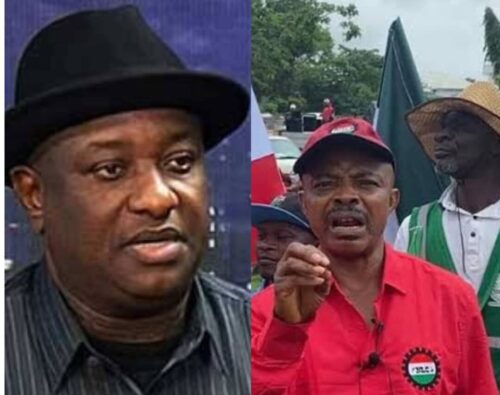

 BIG STORY5 days ago
BIG STORY5 days ago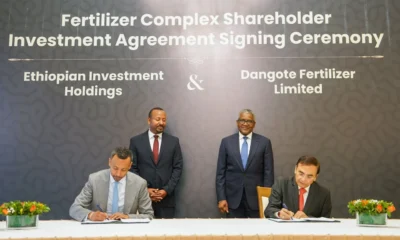
 BIG STORY4 days ago
BIG STORY4 days ago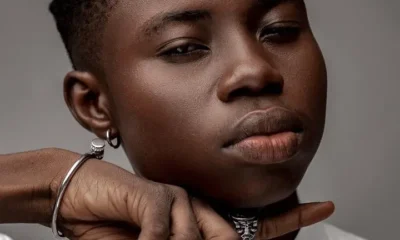
 BIG STORY4 days ago
BIG STORY4 days ago
 BIG STORY3 days ago
BIG STORY3 days ago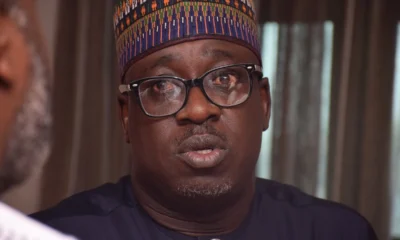
 BIG STORY3 days ago
BIG STORY3 days ago
 BIG STORY9 hours ago
BIG STORY9 hours ago
 BIG STORY5 days ago
BIG STORY5 days ago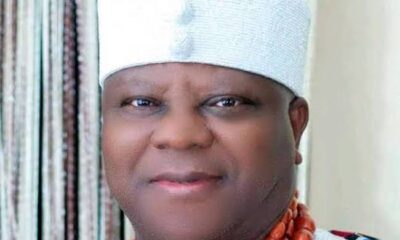
 BIG STORY5 days ago
BIG STORY5 days ago
















